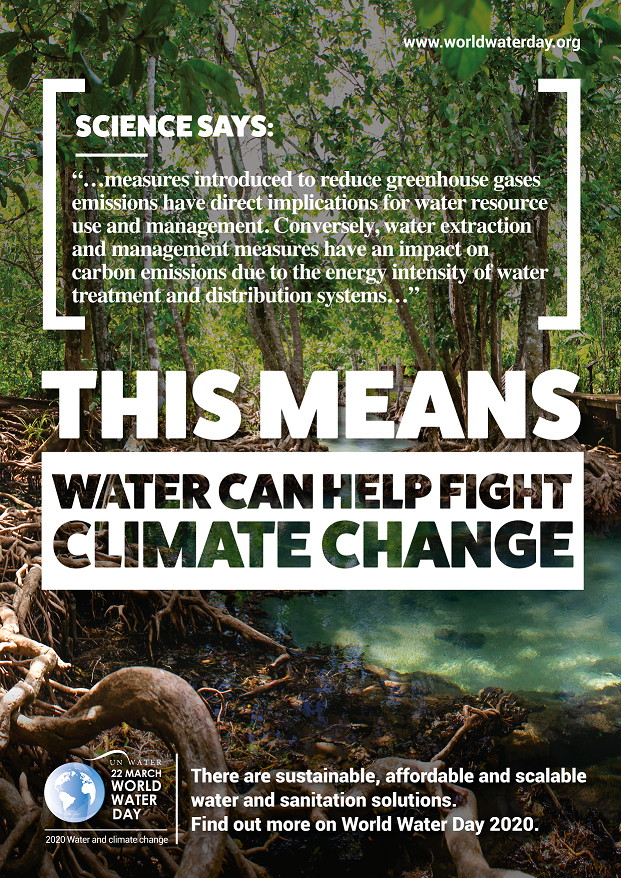World Water Day 2020
Published in Sustainability

UN-Water sets the theme for World Water Day, and this year it's the inextricable link between water and climate change. From groundwater management to palaeoclimate studies in Australia, our community contributors share their thoughts and expertise on this theme, summarised below.
Uncertainty and ambiguity from climate changes adds a unique and challenging aspect to effective water governance, says Todd Guilfoos. This is also the subject of Vignesh Sridharan's post, which highlights the vulnerability of Sub-Saharan Africa to future climate uncertainties and water availability.
Miron Avidan and Dror Etzion share some preliminary results into their research examining how corporate organisations engage and respond to the water-energy nexus.
If water is valuable and scarce, why is it so poorly managed? Asks Edward Barbier.
Conserved water should be measured when considering water sustainability, say Donald Broom and Rowan Eisner.
Grant Ferguson discusses the complex link between climate change and groundwater resources. Sticking with groundwater, Richard Taylor revisits his 2012 Nature Climate Change Review 'Ground water and climate change' and highlights key developments in the field since its publication.
Oki Taikan considers the magnitude of climatic and social changes when is comes to the water cycle.
Focusing on Australia, Tessa Vance's post discusses the use of palaeoclimate records in determining how much of the country's recent record breaking droughts, floods and wildfires is due to climate change.
And finally, Helen Kopnina and Veronica Strang suggest that a species-inclusive approach to water management is important to providing more sustainable water policies and practices.
You can access all these posts here.
Thanks for posting, reading and supporting World Water Day!

Poster image from Pixabay.
Follow the Topic
What are SDG Topics?
An introduction to Sustainable Development Goals (SDGs) Topics and their role in highlighting sustainable development research.
Continue reading announcement
Please sign in or register for FREE
If you are a registered user on Research Communities by Springer Nature, please sign in